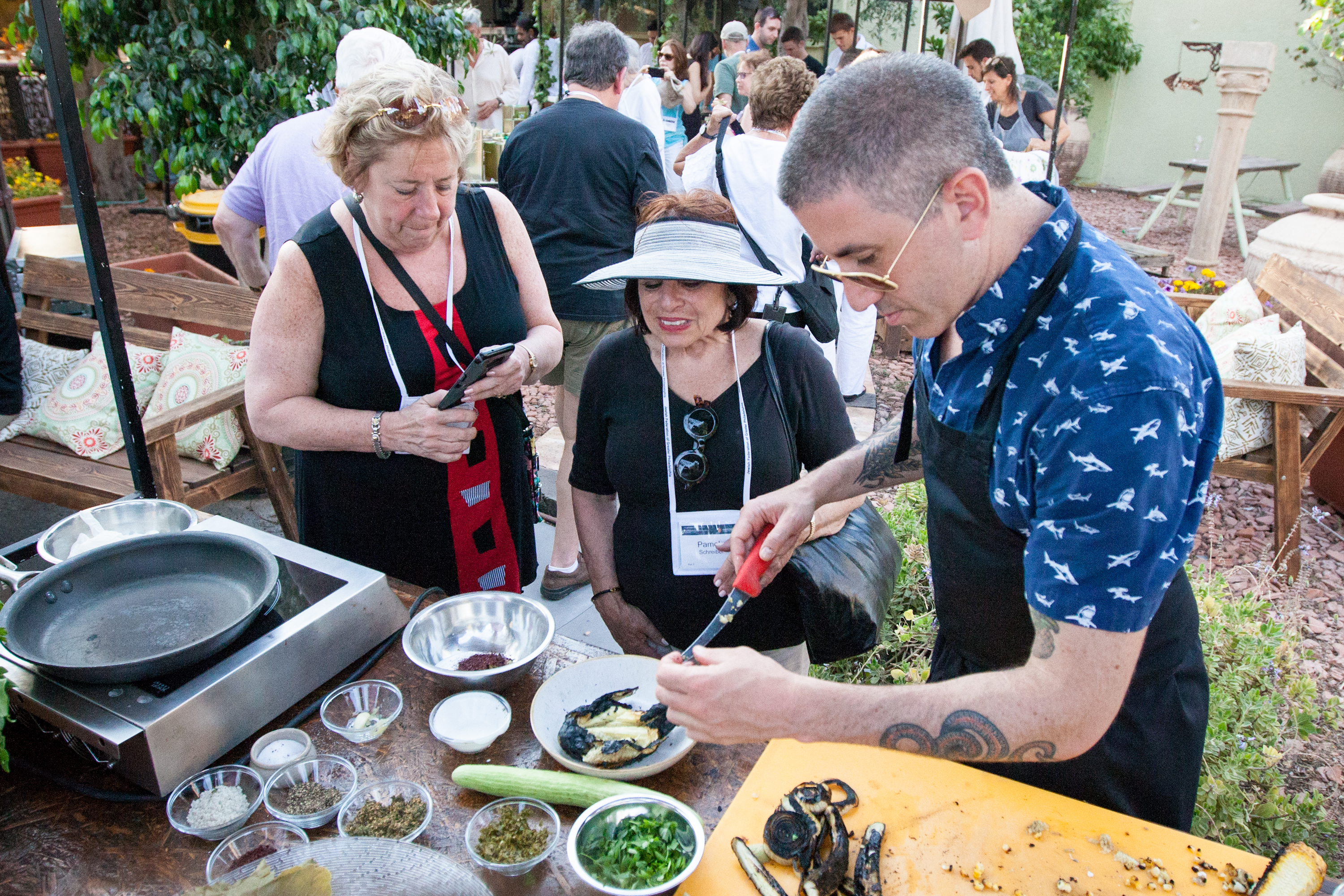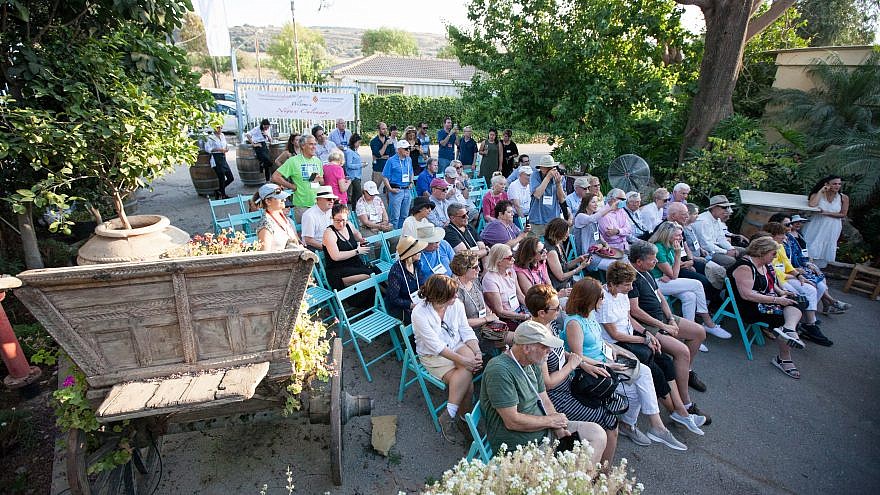A delegation of 60 donors from the Philadelphia Jewish Federation traveled to Israel this month with the Philadelphia Orchestra, playing three concerts there from June 1 to June 7. Wildly popular Israeli-American chef Michael Solomonov, best known for his award-winning cookbooks and his acclaimed restaurants in Philadelphia—the high-end Zahav is known nationwide—also accompanied the tour.
“These are but two great examples of how Philadelphia has become a center of extraordinary Jewish communal life in America,” David Gold, a member of the Jewish Federation of Greater Philadelphia’s Board of Trustees, told JNS.
This creativity, said Melissa Greenberg, Chief Development Officer of the Jewish Federation of Greater Philadelphia, is coming up with this multifaceted trip that included Solomonov, Federation philanthropists and musicians who had never before been to Israel. “Both music and food reflect humanity; [they] tie people back to the essence of Israel and its people.”
Similarly, said Gold, “The Jewish Federation of Greater Philadelphia is the driver of that success and has enabled the orchestra to visit Israel for the first time in almost 30 years.”

A different kind of diplomacy
Ryan Fleur, interim president of the Philadelphia Orchestra, told JNS that the goals in performing in Israel was about “returning to a country that has a deep history with and connection to classical music—from Toscanini leading the first performance of what was to become the Israel Philharmonic to Leonard Bernstein’s 40-year relationship with the country; fulfilling our purpose of people-to-people exchange; letting music speak across cultural divides and language barriers to promote mutual understanding; strengthening the bonds between Philadelphia’s Jewish community and Israel; and including the sister-city relationship with Tel Aviv, and many joint social-service and investment commitments.”
According to Fleur, the musicians found the country to be “welcoming” and “beautiful,” with the people extraordinarily appreciative”—a different perspective than the BDS (Boycott, Divestment and Sanctions) movement seeks to portray.
Gold reported that the orchestra saw BDS on the streets of Philadelphia, where two people desecrated an Israeli flag on Benjamin Franklin Parkway in the city’s center and in Europe in the lead-up to the Israel leg of their trip, where they experienced a disruption of their concert in Brussels.
Solomonov, too, experienced anti-Israel challenges in which Americans argued with him that Israeli cuisine does not exist, and rather, the country culturally appropriates other nations’ food traditions. In April, Solomonov experienced criticism for hosting a dinner with Reem Kassis, author of The Palestinian Table, in which Palestinian dishes were highlighted at Zahav in celebration of Kassis’s new cookbook.
“While I am proud to work in an industry where there is a focus on change, when you start putting limitations on food, that’s ridiculous. To say there is no Israeli cuisine is an argument to say that Israel doesn’t have the right to exist,” he told JNS.
Solomonov explained that Israeli cuisine is defined by the embodiment of what it means to be local out of necessity, and like Israel itself, is a gathering of the exiles in which the Diaspora is continually introducing new foods to the Israel palate. “It’s something that’s happening in real time,” he said, adding that currently, new immigrants to Israel, such as Ethiopians and Georgians, are influencing the way people cook.
“To simply say Israel is 70 years old is half of the story,” emphasized the chef. “We have the ancient holidays and laws of kashrut that have influenced our cooking. We have microclimates all over the country that influences the cuisine. Years ago, Jews were pushed out of countries like Yemen, Morocco, Bulgaria, Spain and Turkey, and each Jewish community has its own cuisine that has transformed over the years and come together to create Israeli cuisine.”
In this way, such food remains especially unique, he said, because of this connectivity of cultures. “A course of salatim [small salads and dishes that are popular as sharable appetizers] includes so many countries of the world on one little table. In a moment where there’s conflict, the food is OK to be together, and it’s even celebrated together, which is a hopeful message.”
He exclaimed: “If the food is good, I don’t care where it comes from!”
Still, Solomonov noted that his choice to join the trip was not a response to anti-Israel criticism, but rather, a new form of diplomacy. “The Israel that I appreciate is pro-progress, pro-inclusion, and pro-celebration of many cultures—and that culture makes Israeli cuisine what it is.”
Fleur said music fosters a comparable sentiment.
“Cultural diplomacy occurs when we are making music through the three full orchestra performances in Israel, master classes, chamber performances and other residency activities,” he said. “The orchestra connected with citizens of diverse backgrounds. At Oasis of Peace, we engaged with Jewish and Palestinian Arab citizens. Other events and concerts had diverse audiences from North Africa, the former Soviet Union and Ethiopia. And the U.S. State Department subsidized concert tickets for students from Lod, Jerusalem, Beersheva and Kfar Saba.”
Like music, Solomonov maintained that food is a great tool to bring people together and facilitate cultural diplomacy—a value that occurs naturally in Israel.
“Food is the final frontier of diplomacy, where you can discuss culture and celebrate other cultures. When we gather around the table, we get everybody to open up to discussing someone else’s narrative. You learn so much; it’s like a type of anthropology.
“And,” he added, “it’s delicious.”



























